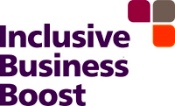Join us for a live written discussion with a panel of experts to discuss creating conditions for social intrapreneurs to thrive
Live Panel
Date 20 June, 10-11am EST (3pm-4pm UK) ADD TO CALENDAR
Background
As more and more companies commit to using their core business to help meet the Global Goals, the spotlight is falling on social intrapreneurs – those talented individuals working inside organisations to generate and develop innovative ideas for projects with social impact. Like social entrepreneurs, intrapreneurs need a healthy ecosystem to survive and thrive.
Research, led by Business Fights Poverty, The League of Intrapreneurs, the UK’s Department for International Development (DFID), CEMEX, and The BMW Foundation with collaborative input from over 90 intrapreneurs, uncovered four key areas which are vital if intrapreneurship is to scale. The aim: to unlock and boost inclusive business approaches and models.
This online discussion will explore the four key components of the internal Intrapreneurship “ecosystem” as uncovered by the research: Purpose beyond Profit, People as Change Agents, Power of We and the Generative Pipeline. The discussion will question why not more inclusive business propositions are reaching market and scaling and why supporting intrapreneurs at a systemic level could assist this.
During the discussion, experts will share their first-hand experience of scaling and embedding intrapreneurship into their businesses. You will have the opportunity to add your own experiences and challenge the latest thinking.
For more detail on the research please take a look at: ‘The Intrapreneurship Ecosystem: Creating the Conditions for Social Innovation to Flourish in your Company’, and for more information on DFID’s wider programme, Inclusive Business Boost.
Panellists
Clive Allison, Global Director, Innovation & New Business Models, Unilever
Gib Bulloch, Intrapreneur in Residence, Business Fights Poverty
Paul Ellingstad, Interim Director, Social Innovation, Pearson
Florencia Estrade, Strategy & Partnerships, The League of Intrapreneurs
Daniel Fernandez Alvarez, Social Innovation Associate, Barclays
Tom Harrison, Technical Director, Business Innovation Facility
Deborah Kaplan, Global Head, SAP Executive Digital Exchange, SAP
Hamzah Sarwar, Global Insight Lead, RB
Danielle Walsh, Director, Future Cities & New Industries, HSBC
Moderator: Tatiana Bessarabova, US Engagement, Business Fights Poverty
Questions
Q1. How can companies create a supportive environment for social innovation ideas to be generated, tested and taken to scale, while serving their core business interests?
Q2. What are the primary challenges that companies face when attempting to stimulate social innovation?
Q3. What are some of the examples of how companies are working to proactively embed social innovation into their businesses at a systemic level?
How to participate
To post a comment, you will need to sign in / sign up to the Business Fights Poverty Discussion Forum:
If you are already a member of the Business Fights Poverty online community, click “Log In” at the top right of the page and then enter your details. If you have not logged into our new community platform, you will have to reset your password here:
https://businessfightspoverty.org/community/new-password
If you are not already a member of the Business Fights Poverty online community, you will need to sign up here: https://businessfightspoverty.org/community/sign-up. Once you are have joined the community, you can return to this discussion page, click “Log In” at the top right of the page and then enter your details.



